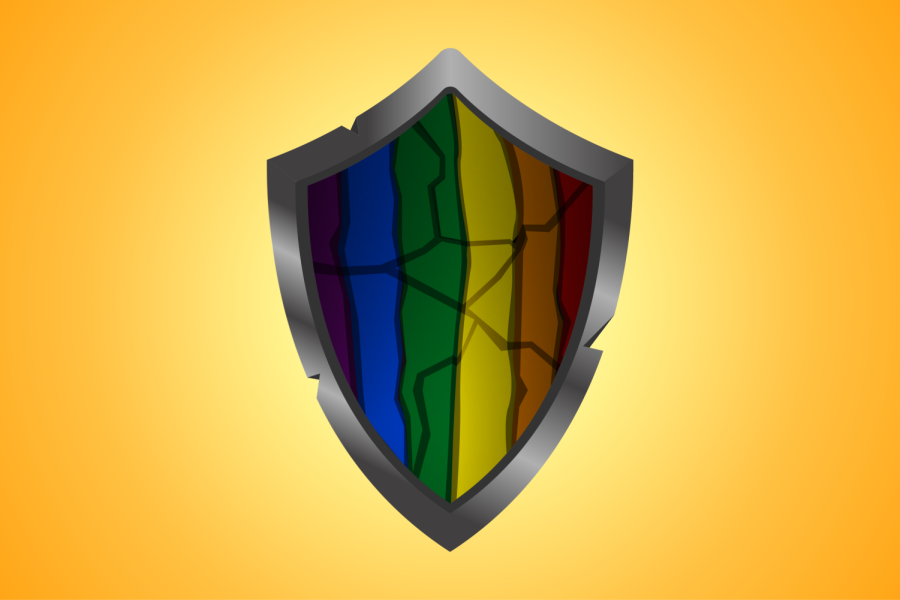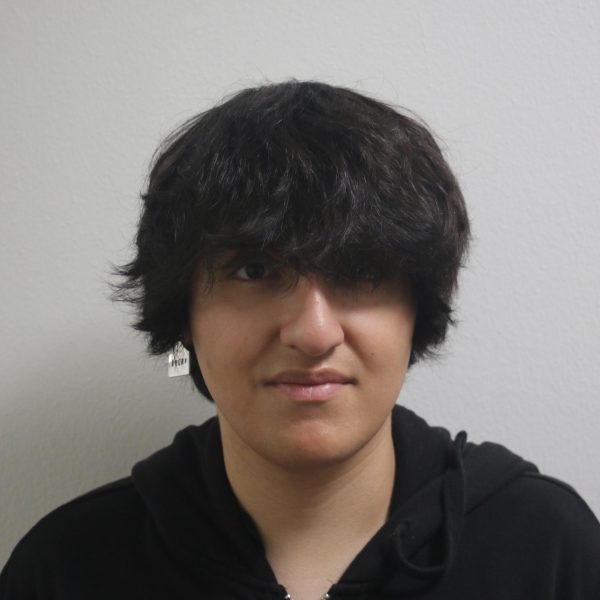LGBTQ students seek community after tragedy
December 8, 2022
When news broke of a far-right gunman opening fire on an LGBTQ nightclub in Colorado, killing five and injuring 17, members of Eastfield’s Prism chapter looked to each other for support.
Despite a rise in anti-LGBTQ rhetoric and legislation, the student-run organization is slowly rebuilding itself, reaching 10 members as of this month.
“It’s a very tough time and that’s why I think offering our community is important,” Prism president Sarah Smith said.
The organization had no members when the Fall 2022 semester began, prompting Smith to take the reins of leadership.
“What we’ll do is play little games, hang out, have a laugh to get away from the stress of the world,” Smith said.
Although the organization’s presence provides a hangout spot to members, attacks on LGBTQ rights from the outside sour the mood. Gov. Greg Abbott has pledged to “stop pushing woke agendas” by passing laws in the next legislative session that starts Jan. 10. The gesture was prompted by national discourse that club members say negatively stigmatizes LGBTQ individuals.
Prism’s members attributed the Colorado shooting to a culmination of hate speech. As a nonbinary student, the tragedy strikes home for Prism vice president Jace Crosby.
“I feel very angry. This was a safe place for people to go to,” Crosby said. “Not only are [LGBTQ] people going to be traumatized with it, but this is going to affect everyone in America.”
Colorado state officials, as well as President Joe Biden, say the rise in anti-LGBTQ rhetoric played a key role in the shooting.
Crosby’s mission involves combatting attacks on the LGBTQ community and promoting discourse at Dallas College.
The college supported LGBTQ students by creating a pro-LGBTQ space known as the Lavender Lounge.
In October, the college hosted its first LGBTQ student summit at North Lake, complete with a drag show. Faculty have taken part in supporting LGBTQ students by displaying “safe space” stickers on office doors.
“I’ve talked to faculty who are part of the community or allies,” said game design major Anthony Reyna, who is gay. “It’s nice that I don’t have to feel weird or judged.”
Reyna said the reason tragedies like the Colorado shooting occur is to encourage LGBTQ erasure.
“Considering where people were targeted, it’ll push [closeted] people further into that closet,” Reyna said.
Republicans introduced the ‘Stop the Sexualization of Children Act’ in October, which would prohibit exposing children to “sexually oriented” topics in K-12 on a national level. The bill targets topics such as transgenderism, gender identity and sexual orientation.
“If someone can just come into a club, what’s to say they can’t come into other queer spaces?” Crosby said.
Despite being targeted by hateful dialogue, students such as Crosby are inspired to promote their presence on campus.
“Some people don’t want to see people who are different,” Reyna said. “They are trying to push us down.”
The shooting took place on Nov. 20 on the night of Transgender Day of Remembrance.
“It’s very jarring to see that, while remembering transgender individuals lost due to violence, we lost some at the same time,” said Cheyenne Murray, program lead for Inclusive Excellence, which tries to promote inclusivity at Dallas College.
Murray said she talked with students frightened by the shooting and its potential for inspiring additional violence. However, she doesn’t have time to be there for every student.
Dallas College only has four Inclusive Excellence leaders who rotate between campuses.
Murray has run into a few occasions where an Eastfield student reached out for support, but would be working at Richland that day.
“We’re doing the best we can, but that doesn’t mean we’re doing a good job,” Murray said.
Additional concerns include training staff and faculty on knowledge of LGBTQ dialogue. Dallas College staff are required to fulfill a certain number of hours for training, but ally training is optional.
Although Murray praises events such as the LGBTQ summit, she wants to see more events and people fostering their presence.
“What’s important is that we are also supporting these students, making sure they are accepted,” Murray said.
As the vice president, Crosby looks back at the history of LGBTQ activism for inspiration on how to move Prism forward.
“We need to keep pushing, pushing and pushing until we can be heard, and something can change,” Crosby said.
Growing numbers is the current objective, followed by hosting events.
“I want more people. I don’t want just queer people,” Crosby said. “I want allies to start coming and help people feel like they’re accepted.”




